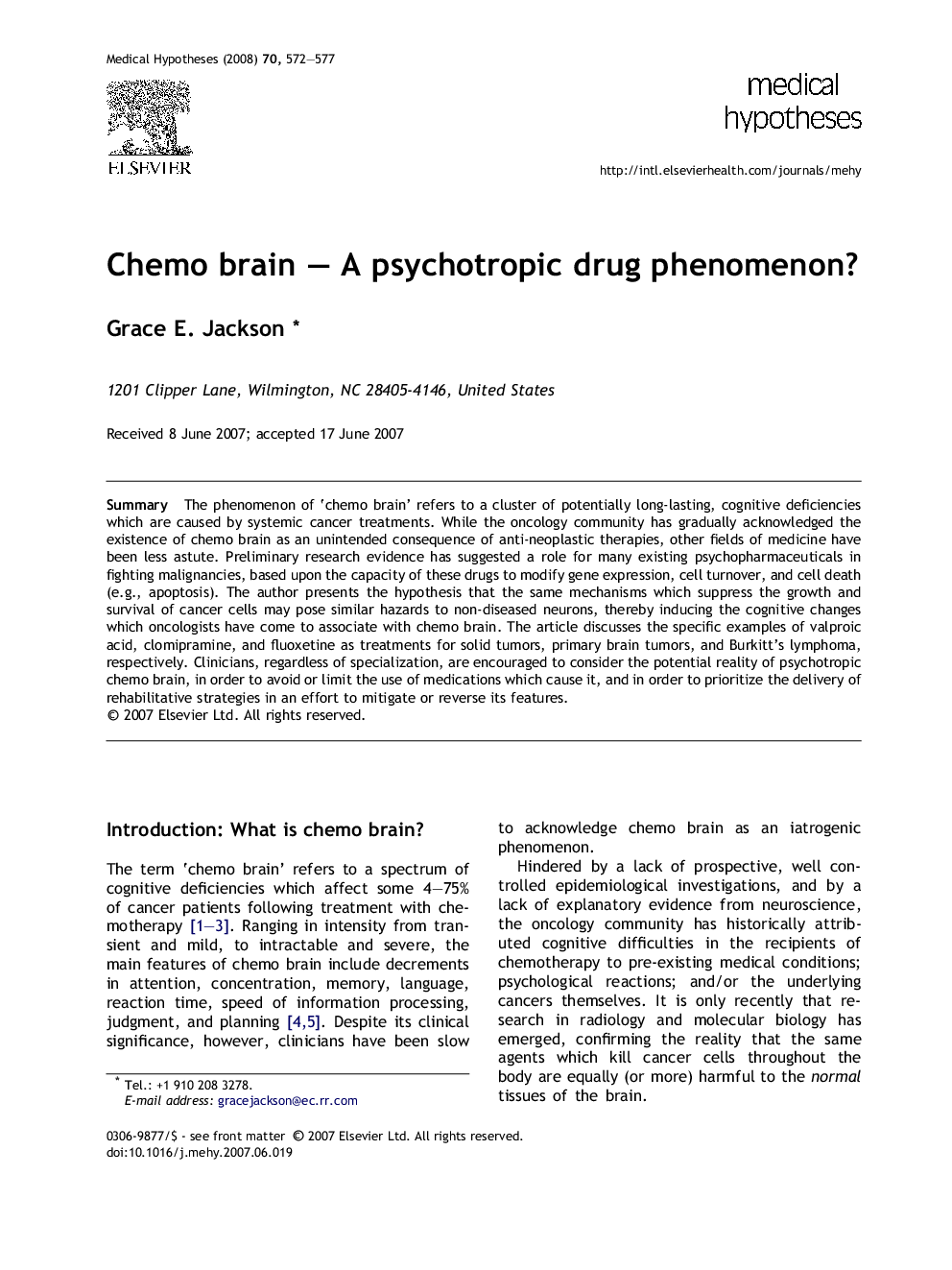| Article ID | Journal | Published Year | Pages | File Type |
|---|---|---|---|---|
| 2491065 | Medical Hypotheses | 2008 | 6 Pages |
SummaryThe phenomenon of ‘chemo brain’ refers to a cluster of potentially long-lasting, cognitive deficiencies which are caused by systemic cancer treatments. While the oncology community has gradually acknowledged the existence of chemo brain as an unintended consequence of anti-neoplastic therapies, other fields of medicine have been less astute. Preliminary research evidence has suggested a role for many existing psychopharmaceuticals in fighting malignancies, based upon the capacity of these drugs to modify gene expression, cell turnover, and cell death (e.g., apoptosis). The author presents the hypothesis that the same mechanisms which suppress the growth and survival of cancer cells may pose similar hazards to non-diseased neurons, thereby inducing the cognitive changes which oncologists have come to associate with chemo brain. The article discusses the specific examples of valproic acid, clomipramine, and fluoxetine as treatments for solid tumors, primary brain tumors, and Burkitt’s lymphoma, respectively. Clinicians, regardless of specialization, are encouraged to consider the potential reality of psychotropic chemo brain, in order to avoid or limit the use of medications which cause it, and in order to prioritize the delivery of rehabilitative strategies in an effort to mitigate or reverse its features.
